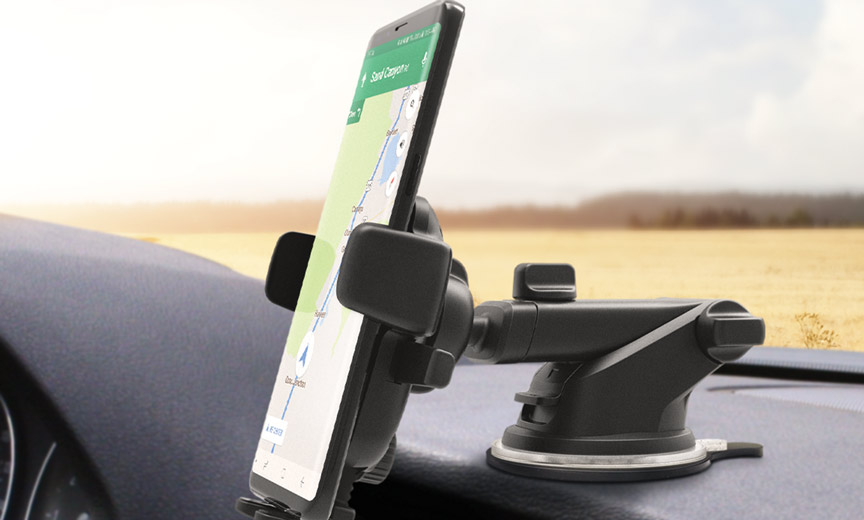Traveling in today’s technologically advanced world may mean you’ll need to add a few things on your “to pack” list.
As someone who travels a lot for business and vacation, I’ve picked up a few tips and tools to take the hassle out of traveling. Here’s a few things you should always bring with you and things you should always do to smooth out the bumps in the road trips.
Plugging In
In my Year End Tech Roundup, I recommended the Poweradd 4 Port USB Wall Charger to charge all your electronics on the go. But in older hotels and cruise ships, power outlets tend to be inconveniently placed and often in use. If you want your stuff in arm’s reach while you’re lying in that king sized hotel bed, you’ll also want to add a 6 foot extension cord to your bag if you travel with a lot of gear.
If you plan to spend some time in your hotel room, bring your Chromecast, Fire Stick or Apple TV and plug them into the in-room television, so you can stream on the big screen.
Driving Smart
Rental cars can be hit or miss when it comes to how tech tricked out they are. Although USB ports are increasingly the norm, there are exceptions, and even if the car is equipped, you may find yourself in need of the extra slots provided by a Dual port USB cigarette lighter adapter if you’re traveling with a group. At about the size if your thumb, it doesn’t take up much room, and you’ll be glad to have when your phone is about to die and your rental car doesn’t have a port.
The other hit-or-miss feature of rental cars is GPS. The good news is your phone will probably do a better job than anything they can rent you anyway. However, if you’re going to use your phone as a GPS, you really should bring along a windshield mounted phone cradle like the iOttie Easy One Touch 4. Perching your phone in your lap or on the dash can be both insecure and distracting especially in unfamiliar territory. A cradle keeps your phone in place and your eyes on the road.
Going Native
When smartphones first came out, there was a lot of hubbub about carriers locking them to their networks, but since 2015 — with very rare exceptions — all smartphones arrive unlocked. Unless you’re with T-Mobile (which offers international data and texting to its customers at no charge), the best thing to do if you travel outside the country is to get a local SIM card for your U.S. phone. Most countries are pay-as-you-go, so there is no commitment required. It’s almost always far cheaper than paying your home carrier for data to browse, use apps and navigate.
Knowing the Rules
You may have heard that the TSA has implemented new rules that require personal electronic devices larger than a cell phone to be removed from your bag and scanned separately during airport screenings; these rules will be phased in at all domestic airports within the next year. However, on a recent flight, I discovered that the TSA definition of “personal electronics” is fairly broad, and both my Bluetooth speaker and my electronic toothbrush both got me sent to the naughty line for additional manual screening. So in addition to laptops, tablets, e-readers and handheld game consoles, don’t forget even your low tech items like clock radios and digital cameras may extend your stay with the TSA if you leave them in your carry-on bags.
These rules will make PreCheck worth considering, even if you only travel once or twice a year. Though it was originally designed for frequent business travelers, one of the benefits is that with PreCheck, the rule change above won’t affect you. PreCheck allows you to leave your gear in your bag and your shoes on your feet. The enrollment fee of $85 might be worth not having to unpack and repack all your stuff in a line of disgruntled travelers; its good for 5 years.
Backing It Up
The most important rule in tech also applies to travel: have back ups of all important documents. Yes, with smartphone apps, travel can now be a blissfully paperless experience, from electronic boarding passes to hotel check in apps, you don’t technically need a single piece of paper. But you should always have them just in case. Always print out boarding passes, hotel and rental confirmations, and keep one copy in your carry on and another in your checked-in luggage. Also, take a photo of your passport and driver’s license. That way, if your phone or wallet is lost or stolen, you’ll have the critical information somewhere else. Keeping copies of such documents means that if your phone dies, you won’t be stranded.
Last modified: April 3, 2018











